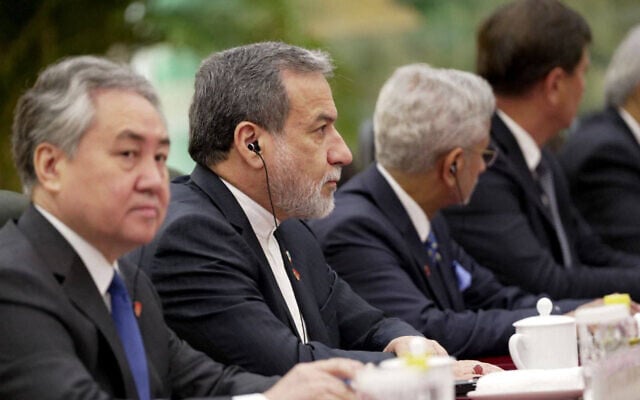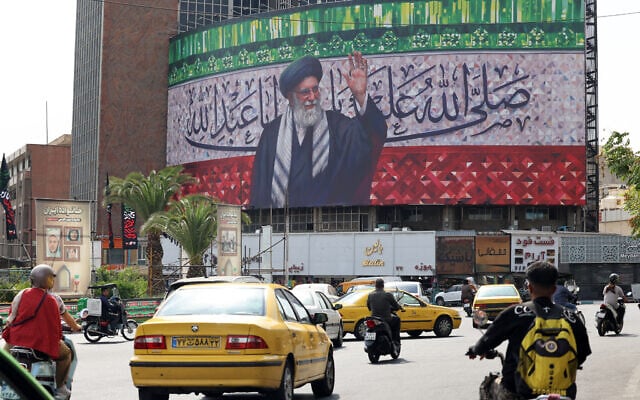



PARIS — France, Britain and Germany told Iran on Thursday that they wanted Tehran to resume diplomacy immediately over its nuclear program and warned if there were no concrete steps by the end of the summer they would restore UN sanctions.
The foreign ministers of the so-called E3, along with the European Union’s foreign policy chief, held their first call with Iran’s Foreign Minister Abbas Araghchi since Israel and the United States carried out air strikes in mid-June on Iran’s nuclear program.
Speaking after the call, a French diplomatic source said the ministers had called on Iran to resume diplomatic efforts immediately to reach a “verifiable and lasting” nuclear deal.
The three countries, along with China and Russia, are the remaining parties to a 2015 deal with Iran that lifted sanctions on the country in return for restrictions on its nuclear program. The US withdrew from the agreement in 2018.
A UN Security Council resolution that enshrines the deal expires on October 18, and under its terms, UN sanctions can be reimposed beforehand. The process would take about 30 days.
The Europeans have repeatedly warned that unless there is a new nuclear accord, they will launch the “snapback mechanism,” which would restore all previous UN sanctions on Iran if it is found to be in violation of the agreement’s terms.

“The ministers also reiterated their determination to use the so-called ‘snapback’ mechanism in the absence of concrete progress toward such an agreement by the end of the summer,” the diplomatic source said.
The source did not elaborate on what concrete progress would entail.
Since the air strikes, inspectors from the UN atomic watchdog, which monitored whether Iran was complying with limits on its nuclear program, have left the country. While Iran has suggested it is open to diplomacy, there are no indications a sixth round of nuclear talks between Washington and Tehran will resume imminently.
Diplomats say that even if they were to resume talks, reaching a comprehensive accord before the end of August seems unrealistic, especially without inspectors on the ground to assess Iran’s remaining nuclear program.
Two European diplomats said they hoped to coordinate strategy with the United States in the coming days with a view to possibly holding talks with Iran soon.

The US-Iran negotiations, which began in April, were halted as Israel launched surprise strikes on Iran’s nuclear and ballistic missile facilities on June 13, starting a war that the United States later joined. Israeli and American officials indicated the sides were coordinated after Washington came to the conclusion that talks with Iran were going nowhere.
Israel said its assault was necessary to prevent the Islamic Republic from realizing its avowed plan to destroy Israel.
Iran has denied seeking to acquire nuclear weapons. However, it enriched uranium to levels that have no peaceful application, obstructed international inspectors from checking its nuclear facilities, and expanded its ballistic missile capabilities. Israel said Iran had recently taken significant steps toward nuclear weaponization.
